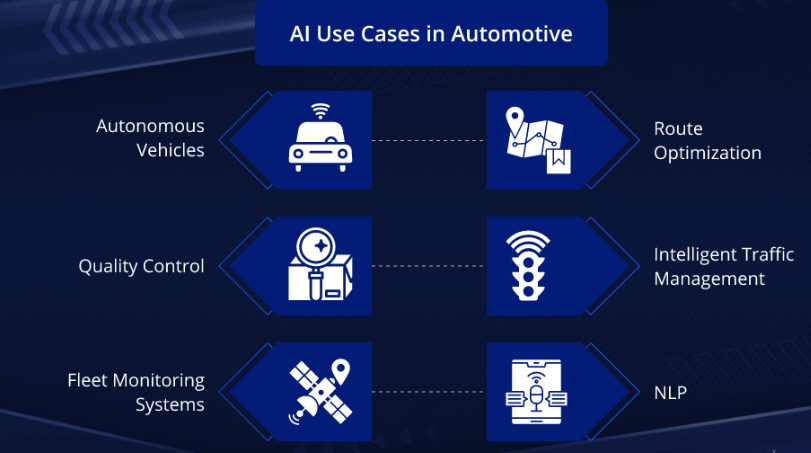Artificial intelligence (AI) is being used in automobiles, which is a revolutionary change that redefines human-machine interaction while also improving vehicle functionality. Vehicles have evolved from being simple means of transportation to being sophisticated systems that can perceive and respond to their surroundings. This article examines the fundamentals of artificial intelligence and digs into its particular functions and effects in relation to modern automotive technologies.
Definition of Artificial Intelligence
Artificial intelligence is a branch of computer science that aims to create machines capable of performing activities that would typically need human intelligence. Some of these tasks include language comprehension, learning, reasoning, and problem-solving. Driven by algorithms and data, artificial intelligence systems learn from the features and patterns in the data they process. In its most advanced forms, machine learning (ML) and deep learning (DL), which leverage neural networks with multiple layers of processing units to enhance algorithmic performance without human intervention, are examples of artificial intelligence.
Role of AI in Automotive Technologies

AI is improving both vehicle functioning and customer experience in the automobile sector in a number of ways, from autonomous driving to predictive maintenance. The following are important domains where AI is gaining ground:
Autonomous Vehicles: Self-driving or autonomous vehicles are at the forefront of artificially intelligent effect in the automobile industry. Cars can now comprehend their environment, make judgments, and traverse highways with little to no assistance from humans thanks to artificial intelligence, which analyses data from external sources and vehicle sensors. AI’s powers in computer vision, natural language processing, and decision-making are critical to this technology.
Advanced Driver-Assistance Systems (ADAS): AI improves road safety with functions including traffic sign recognition, adaptive cruise control, collision avoidance, and pedestrian identification. By analysing real-time data from cameras and sensors in the car, these AI-powered technologies actively help the driver avoid collisions.
Predictive Maintenance: AI is essential to predictive maintenance as well. It uses data analytics to anticipate auto maintenance requirements before they become evident. Artificial Intelligence (AI) can detect possible problems and notify drivers to take preventive action by evaluating data from multiple sensors in the car. This lowers the likelihood of breakdowns and increases the lifespan of the vehicle.
Personalization: Adjusting driver settings like seat position, temperature, and even driving style, artificial intelligence improves user experience. Artificial intelligence has the ability to automatically modify a variety of settings, enhancing and personalising every driving experience by learning from the driver’s habits and preferences.
Manufacturing: Increase productivity and quality, artificial intelligence technologies are used in the manufacturing process. AI-enabled robots assist humans in the faster and safer assembly of automobiles, minimising human error and streamlining manufacturing lines.
Infotainment and Connectivity: Artificial intelligence is used by in-car entertainment and information systems to create a more user-friendly and engaging experience. Voice-activated virtual assistants enable drivers to communicate hands-free with their cars and mobile devices by understanding and responding to spoken commands.
Traffic Management: Artificial Intelligence plays a role in enabling smarter traffic management systems that evaluate traffic patterns and modify signals to minimize gridlock. Furthermore, AI-enabled vehicle-to-vehicle (V2V) communication improves overall road safety by enabling automobiles to exchange information about traffic, accidents, and road conditions.
In summary
Artificial intelligence is revolutionising the automotive sector by improving all facets of vehicle manufacturing and operation as well as providing power for driverless cars. Artificial intelligence is playing a wide and expanding role in automobile technologies, from enhancing safety through sophisticated driver-assistance systems to optimising maintenance schedules through predictive analytics. AI’s incorporation into the automobile industry is expected to produce even more creative solutions as it develops, increasing safety and boosting efficiencies.
AI-powered automotive technology has a lot of promise and could have a big impact on how we commute, use our cars, and see mobility in a world where everything is connected. Pursuing education or training expressly designed for AI applications in automotive technologies, such as a specialist course or program, can offer priceless insights and abilities essential for success to individuals hoping to enter this exciting area.
